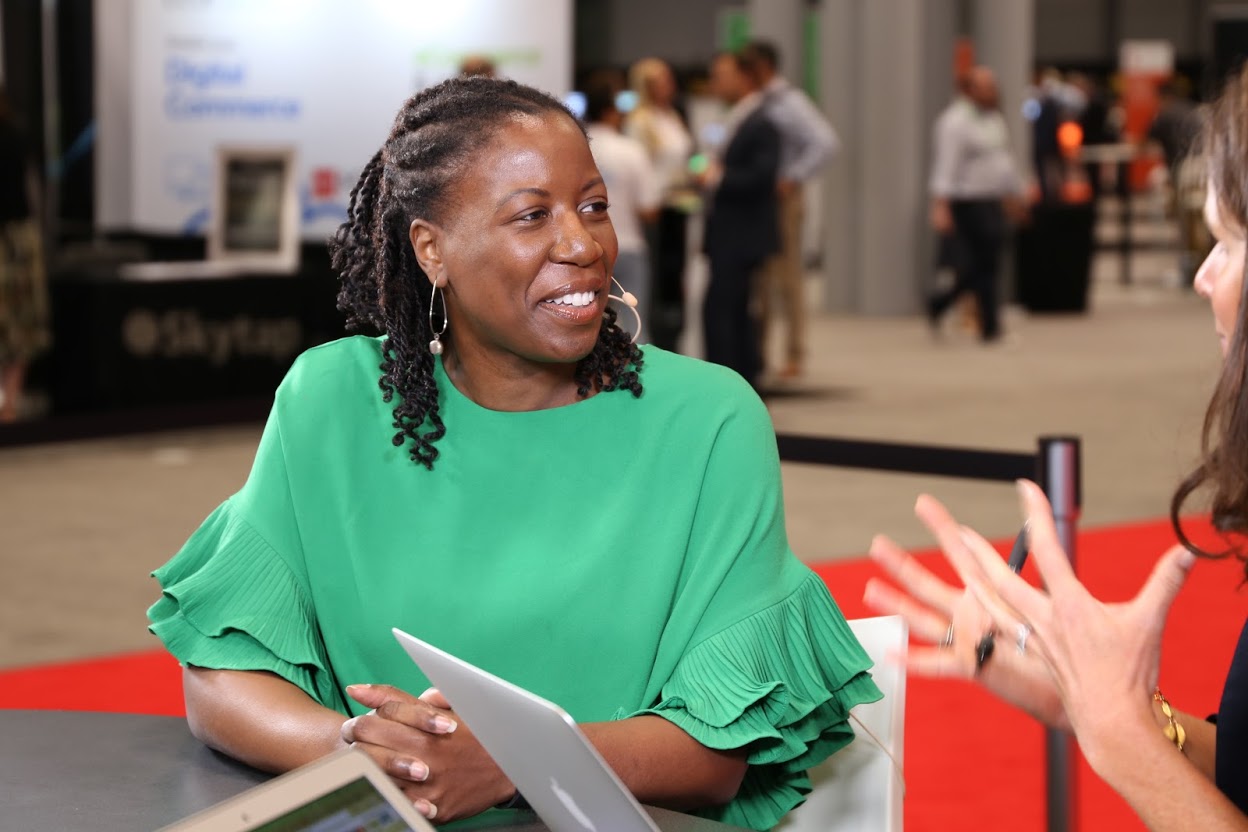 WOMEN IN TECH
WOMEN IN TECH
 WOMEN IN TECH
WOMEN IN TECH
 WOMEN IN TECH
WOMEN IN TECH
Companies may want to hire talented people with a range of educational and work experience for a number of reasons. Some say that diverse and even dissonant opinions help formulate broadly appealing advertisements, for example. But old habits in the human resources department die hard. Many companies hire predictably from the same talent pool year after year. So how can they reach out and attract fresh blood into their ranks?
“They need to stop being corporate and stop being political. I don’t know how else to say it,” said Martine Cadet (pictured), vice president of global talent enablement and head of the Educational Alliance Program at Infor Inc.
Infor began exploring unconventional means of cultivating and attracting talent with its Educational Alliance Program in 2014. The alliance partners with colleges, universities and nonprofit organizations to introduce Infor products and technologies to students across multiple disciplines.
“Through their professors, they learn hands-on, immersive technologies that businesses run on each and every single day,” Cadet said in during an interview at the recent Inforum event in New York. Branching outside the expected Stanford-MIT tech nexus is an intrinsic part of the mission, she told Dave Vellante (@dvellante) and Rebecca Knight (@knightrm), co-hosts of theCUBE, SiliconANGLE Media’s mobile livestreaming studio. (* Disclosure below.)
This week, theCUBE spotlights Martine Cadet in our Women In Tech feature.
Infor’s focus on developing products for specific industry verticals demands that its people know more than coding languages, according to Cadet. They must also know the language of business.
“Customers want somebody who’s got 20 years of deep industry expertise,” she said. “But you need an opportunity to actually start building that industry expertise, so what we’ve been doing is actually creating that pathway for the students to be able to do that.”
Students studying under the Educational Alliance Program and majoring officially in business or finance might turn into excellent consultants for Infor, Cadet stated. The alliance also offers continuing education courses to working professionals. Experience these students have gained in marketing or finance, for instance, coupled with Infor technology know-how could prove the perfect recipe for a salesperson or consultant.
“They’re able to think not just as a technologist or not just as a business person, but within that kind of gray area, which is where the industry’s going,” Cadet said.
So far the program is active at 33 institutions worldwide, representing about 400 colleges and universities, according to Cadet. Infor chose to cast a wide net beyond the Ivy League and similar schools known to funnel in students from beds of privilege.
“We’re looking to partner with community colleges that have amazing talent that possibly did not have the same access,” she said.
Introducing large numbers of students to technology before they enter the workforce is becoming imperative, Cadet pointed out. As artificial intelligence threatens to automate jobs away, people have to be able to wield technology creatively in ways that machines cannot, she added.
“How do we change the idea of what we go to school for and what we get educated on that we are actually producing people who are able to be thoughtful and to merge and to find different ways to use technology?” Cadet stated. “We’ve never thought that way.”
The talent for these new types of jobs can be created through innovative education models, Cadet explained. In fact, much cross-disciplinary diverse talent already exists. Whether companies will make use of it, however, remains in the hands of hiring managers. Individuals in human resources roles are subject to the same unconscious bias as the rest of us. They must make a mindful effort to stretch outside their comfort zones and talk to applicants who don’t fit the status quo, Cadet added.
This does not mean setting up quotas or saying, “I’m going to set aside x number of seats for one type of person,” Cadet said. “But you should at least interview a diverse pipeline, and perhaps you’ll be surprised in what you see come out.”
Watch the complete video interview below, and be sure to check out more of SiliconANGLE’s and theCUBE’s coverage of the Inforum 2017 event. (* Disclosure: TheCUBE is a paid media partner for Inforum 2017. Neither Infor Inc. nor other sponsors have editorial control over content on theCUBE or SiliconANGLE.)
Support our mission to keep content open and free by engaging with theCUBE community. Join theCUBE’s Alumni Trust Network, where technology leaders connect, share intelligence and create opportunities.
Founded by tech visionaries John Furrier and Dave Vellante, SiliconANGLE Media has built a dynamic ecosystem of industry-leading digital media brands that reach 15+ million elite tech professionals. Our new proprietary theCUBE AI Video Cloud is breaking ground in audience interaction, leveraging theCUBEai.com neural network to help technology companies make data-driven decisions and stay at the forefront of industry conversations.